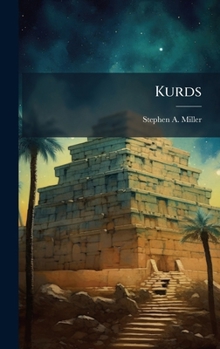Kurds
Of all the ethnic groups in the Middle East, the Kurds can best determine the success or failure of the US attempt to establish a democracy in Iraq. Since 1991, the Kurds, unlike any other ethnic nation, have experienced the best-protected autonomous governance in the Middle East. During the interim years leading up to Operation Iraqi Freedom (OIF), the Kurds have established an independent economy, political structure, and resurgence in nationalism. They hold claim to regions that contain the richest natural recourses in the Middle East, from oil, to agriculture, to water. It is left to the United States to determine if the Iraqi Kurds will be integrated into the new political system of Iraq or allowed to breakaway to establish their own independent state. This thesis aims to examine the options available to the United States in the event the Iraqi Kurds attempt to realize a goal of independence.
This work has been selected by scholars as being culturally important, and is part of the knowledge base of civilization as we know it. This work was reproduced from the original artifact, and remains as true to the original work as possible. Therefore, you will see the original copyright references, library stamps (as most of these works have been housed in our most important libraries around the world), and other notations in the work.
This work is in the public domain in the United States of America, and possibly other nations. Within the United States, you may freely copy and distribute this work, as no entity (individual or corporate) has a copyright on the body of the work.
As a reproduction of a historical artifact, this work may contain missing or blurred pages, poor pictures, errant marks, etc. Scholars believe, and we concur, that this work is important enough to be preserved, reproduced, and made generally available to the public. We appreciate your support of the preservation process, and thank you for being an important part of keeping this knowledge alive and relevant.





